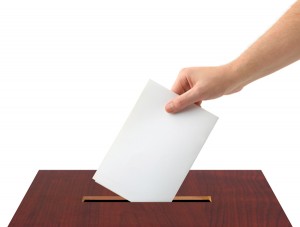 By Steve Brawner
By Steve Brawner
© 2016 by Steve Brawner Communications, Inc.
Voters complain each presidential election about their choices, but that’s especially true this year. According to Real Clear Politics’ compilation of polls, Hillary Clinton is viewed unfavorably by 55.5 percent of voters and favorably by only 39.7 percent, while Donald Trump’s numbers are worse: 61.1 percent to 33.4 percent unfavorable to favorable.
These are historic numbers, and they could get worse. When candidates’ negatives are so hopelessly high, they respond by trying to drive up their opponents’ unfavorables and, if necessary, win by becoming the lesser of two evils. Both campaigns will unleash a torrent of negative ads. Both have plenty to work with.
If you’re like many Arkansas voters, you may have said you’ll just write in somebody else’s name. Unfortunately, there is no provision in the law for you to do that in the presidential race.
However, there will be other candidates on the ballot: the Libertarians’ Gary Johnson, the Greens’ Jill Stein, the Constitution Party’s Darrell Castle, and possibly others. The bar for running for president in Arkansas as an independent is remarkably low: Just collect the signatures of 1,000 voters, which is much less than the 10,000 required to run for statewide offices. Candidates have until August 1 to submit those signatures.
This is the part where somebody always says, “Don’t waste your vote. If you don’t vote for one of the two major party candidates, you’re helping the other one” – the one they don’t want to win.
I respectfully disagree with that kind of thinking. An election is not just a process for picking winners and losers. It’s an opportunity for voters to express their beliefs about the country’s direction. Many voters strongly oppose both Clinton and Trump and do not want to affirm either candidacy on Election Day.
If your beliefs more closely align with one of those third parties, then vote your conscience and encourage others to do the same. That’s how the Republican Party came into existence. On March 20, 1854, a small group of idealists met in a Wisconsin schoolhouse to form a new party that would be based on their anti-slavery convictions, not raw political calculations about who might win the next election. Instead of holding their nose and voting for the lesser of two evils, they took the long view and stayed true to their beliefs. Six years later, Abraham Lincoln was elected president.
No matter how you vote, you won’t change the results in Arkansas. The United States does not have national elections where everybody’s vote goes into a big pot. It has individual, winner-take-all state elections that feed into the Electoral College. Arkansas has six votes, and we already know who will win them. In a recent Talk Business & Politics poll, Trump leads Clinton, 47-36 percent, and nothing will turn those numbers around. Clinton’s 36 percent is consistent with recent election results: President Obama won 37 percent in 2012; while in 2014, Sen. Mark Pryor won 39 percent in the U.S. Senate race while Mike Ross won 41 percent in the governor’s race. Somewhere in those numbers is the Democrats’ ceiling.
Regardless of what you as a voter do, Arkansas will be part of a large red splotch in the middle of the country on your television screen on Election Night. The state will be called for Trump immediately after the polls close, and then the attention will turn to the states that are actually up for grabs: Florida, Ohio, Pennsylvania, etc.
In other words, because Arkansas is blood red, your vote essentially has become meaningless as an election-deciding tool. However, as with those idealistic Republican reformers in 1854, it has great meaning as a form of political expression. This is when your voice really counts.
The best vote I ever cast was in 1992 for independent candidate Ross Perot. I believed he was not temperamentally suited to be president, but he campaigned on political reform and on balancing the budget and ran 30-minute infomercials explaining the national debt. On Election Day, he won 19 percent of the vote. Not coincidentally, President Clinton and the Republican Congress began working on balancing the budget. They couldn’t ignore Perot’s voters.
So do you really want to avoid wasting your vote? Vote your conscience.
Excellent analysis, Steve.
Johnson-Weld 2016!
Another interesting column, Steve, I can certainly understand where you’re coming from. I too would like to have a bit more variety when it comes to viable political parties and candidates. And, of course, people should vote their conscience, but I guess my question is, is there a line here?
For example, if the election were very tight and you knew your vote for a third party candidate might just result in the election of Donald Trump, would you still cast that vote? You said you voted for Perot even though you didn’t think he would make a good president. If yours were the deciding vote for a Perot presidency, would you still vote that way?
An interesting thought experiment is what would the world look like today if just a few less people had voted for Nader in 2000. Would we have invaded Iraq on a false pretext, what would the Middle East look like, how about global terrorism, how about the defense budget? Of course, impossible to know, but my point is that votes do have consequences. How many people in the UK voted for Brexit as a protest vote against the EU because they never thought it would actually happen? From reports, quite a lot of people are regretting that vote now, and the UK has been set on a course of disintegration, economic turmoil and isolation from Europe by voters, many of whom didn’t actually want to leave the EU. Certainly there’s a lesson in there somewhere.